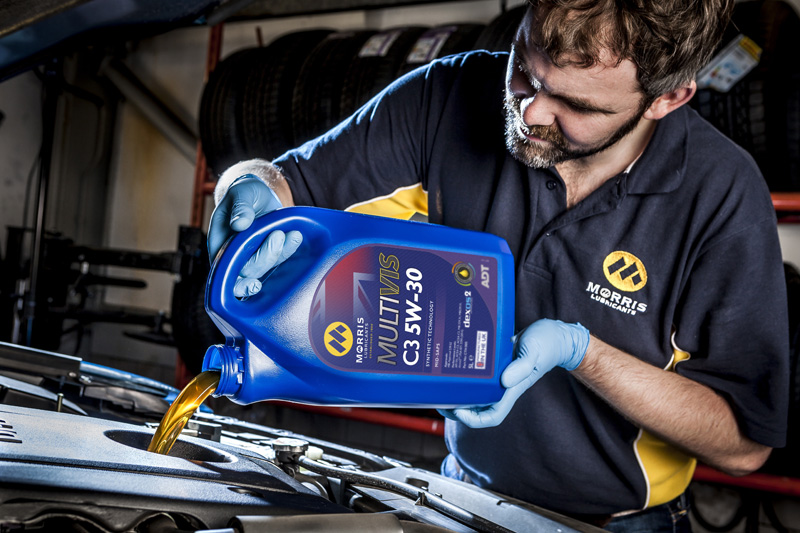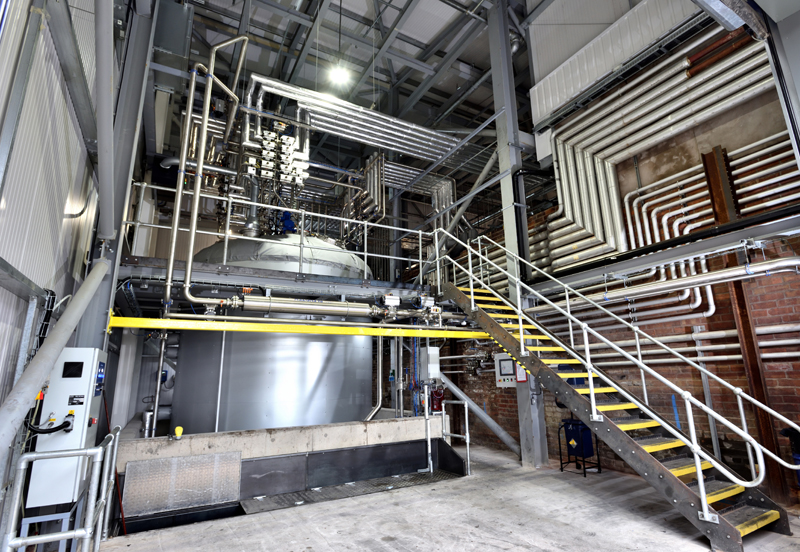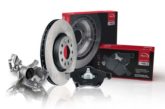
Owen Llyod, chief operations officer of Morris Lubricants, discusses the importance of sourcing quality engine oils.
Gone are the days when automotive workshops had a big tank of engine oil that was used for pretty much any vehicle that made it onto a service ramp. Today’s Original Equipment Manufacturers (OEMs) are demanding ever more stringent engine oil and lubricant formulations to meet the Euro Standards for emissions. Modern engine oils must work alongside after treatment devices such as Diesel Particulate Filters (DPFs), Gasoline Particulate Filters (GPFs) and Selective Catalytic Reduction (SCR – AdBlue) NOx reduction systems to name just a few, as well as having to achieve higher performance goals, with thinner engine oils promoting improved fuel efficiency – all helping to reduce emissions.
This means that engine oils and other lubricants are now considered as critical components for the efficient and long-term performance of passenger cars. The quality of the product selected and used cannot be underestimated.

The raw materials
The finished quality and performance of engine oils and other lubricants can only ever be as good as the raw materials that make up the precise formulation.
As Owen states, “At Morris Lubricants, we only work with carefully selected and trusted partners with whom we can collaborate with on a long-term basis. This helps us to ensure we can source the exact base oils and additive chemistry needed for the specific product formulations for the automotive industry. These top tier suppliers, with their own precise quality systems, provide us with the assurances that the quality of the incoming raw materials meet our own strict quality control standards and ultimately the OEM specifications that need to be satisfied. This insistence on high quality extends through the supply chain and includes product packaging and other materials used throughout the manufacturing process. In today’s world, it is also important to partner with suppliers that provide raw materials that have been sourced responsibly and ethically.”
OEM specifications
Owen continues, “The quality journey does not stop at just selecting quality raw materials. How these are used and which validated formulations are followed also form part of the quality manufacturing process. Validated formulations are composed of base oils and tailored additive chemistry. Depending on the performance level to be achieved, a variety of base oils can be employed and can be derived from mineral sources (crude oil), or synthetic sources (chemical synthesis). Base oil choice depends on the attributes demanded by the OEM. These base oils are enhanced with additive chemistry that provides active functionality to the finished lubricant. Once again this is fine tuned to meet the demands of the OEM. Common additive chemistry includes anti-wear agents, friction modifiers, antioxidants, corrosion inhibitors, detergents and dispersants, plus many more.”
Beware of low prices
In a competitive market, there can be a race to achieve lowest price. Some lubricant suppliers may take the choice to select cheaper raw materials to help lower the retail price of their finished goods. Beware, this could lead to lubricant quality becoming compromised. If cheaper additive chemistry is used, it is difficult to ensure that the extensive bench testing, rig testing and field trials have been conducted. These processes are essential for balancing base oil and additive chemistry. There are no short cuts! Owen warns that, “Missing out these steps could result in inferior quality lubricants making their way into vehicles with the potential to cause a reduction in performance or worse, severe damage to the vehicle.”
As Owen highlights, “At Morris Lubricants we recently invested over £5 million into our manufacturing facility. This included the installation of a stainless-steel tank farm, a network of stainless-steel pipework, a pigging system as well as an additional 37,000 litre bulk production tank with ultrasonic blending capabilities. This investment has helped to increase the production capacity, improve the levels of flexibility in the production processes, reduce waste and maintain a high quality finished lubricant.”

Testing, testing, testing
As highlighted, testing is an important stage in the research and development process of engine oil and other lubricant formulations, but it is also vital in the manufacturing of the finished product. Customers should check their lubricant suppliers’ credentials carefully. Owen advises that “A reputable provider will be glad to talk you through their quality control process”.
Owen expands on this further and explains, “At Morris Lubricants, quality samples are systematically taken and tested in our onsite Quality Control Laboratory that is equipped with the latest and arguably some of the best testing equipment available. Samples are taken throughout the manufacturing process, from receipt of raw materials, through to manufacturing and final product filling. This is supported by full batch traceability, providing assurances that the finished lubricant complies with the OEM specifications claimed and it is fit for purpose. Physical samples of finished product are kept for two years, and computerised quality control records are kept indefinitely to provide full traceability.”

Documentation called a Candidate Data Package (CDP) should also be available upon request from a lubricants manufacturer. This details all the development work carried out and validates the performance claims made on the lubricant. This documentation is important and as Owen explains “If a CDP is required for a Morris Lubricants’ product, this information along with support and guidance can be provided by our dedicated Technical Services Department.” Here for today and the future In a market driven by changing automotive standards and environmental considerations, the importance of selecting high-quality lubricants cannot be overstated. Owen concludes, “Morris Lubricants prioritises quality at every stage, from sourcing raw materials to precise manufacturing and rigorous testing. This ethos, “quality by choice, not by chance” reaffirms the critical role of premium lubrication in ensuring the efficiency, reliability, and longevity of modern vehicles.”
The Morris Lubricants’ range of quality automotive engine oils are suitable for a wide variety of petrol, diesel and hybrid automotive engines. If you are unsure what oil is needed, call the Morris Lubricants Technical Helpline on 01743 237541, or use the company’s WhatOil online lubricant lookup. Simply enter a car registration number and the recommended engine oil is shown.









